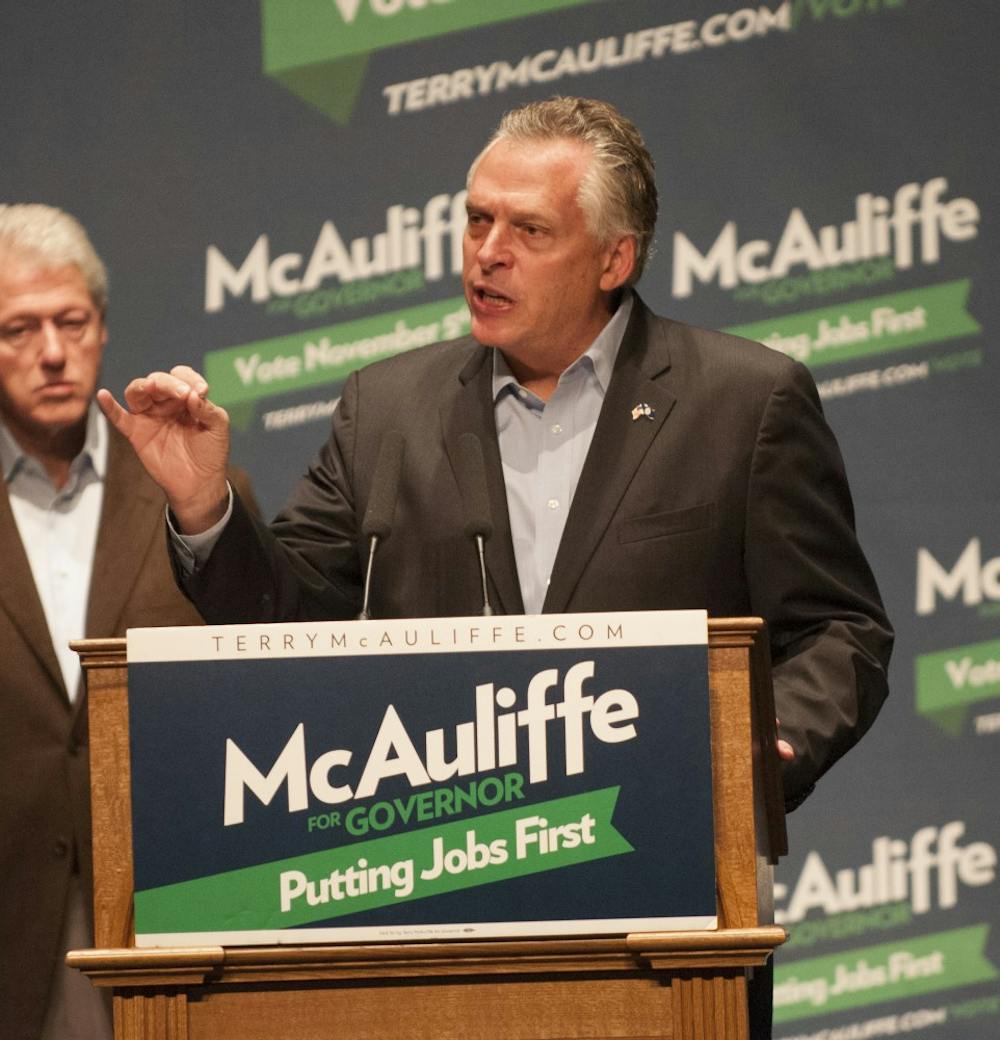Gov. Terry McAuliffe announced his appointments to a task force Monday which will work to combat sexual violence on Virginia campuses. University Dean of Students Allen Groves and Emily Renda, a 2013 University graduate and project coordinator in the Office of the Vice President for Student Affairs, are among 30 appointed members from throughout the commonwealth who will serve on the task force.
The task force will first convene Oct. 9 and intends to meet quarterly.
Those selected represent a large cross-section of commonwealth professionals invested in combatting campus sexual assault, and include higher education administrators, forensic nurse examiners and law enforcement officials.
“The objective, in short form, is to develop the best practices for colleges and universities on preventing and addressing sexual assault,” Groves said. “The idea is to bring together subject matter experts in the area to sit around a table and brainstorm on best practices. That vehicle seems to me to be very effective.”
The task force will also include student activists, many of whom are sexual assault survivors themselves.
“We’re hopefully a blending of student perspective, survivor perspective and federal perspective,” Renda said. “I can at least voice what I see as barriers to student engagement and understanding.”
Officials designed the task force to craft recommendations to the Governor's Office on potential legislative or executive action which would improve the way Virginia’s public universities handle cases of sexual assault.
“Especially important are the prevention strategies,” Renda said. “Just anything that Virginia as a whole can be doing to get on the front end of this issue as opposed to kind of triaging the back end.”
The task force will also allow universities to compare policies with each other and determine what is most effective. Beyond the standards set by the federal government, states and universities are at liberty to create their own policies to address sexual violence.
“It’ll be nice to not only be re-evaluating, but also see how we line up with and get feedback from other universities to see what we could be doing differently,” Renda said. “Something could be compliant [with federal standards], but it may not be good, and I think that’s something we really struggle with at U.Va.”
The task force will not begin discussing policy until its first meeting.
Renda said she would support state programs in bystander education, as well as education programs which would begin in secondary school.
“What we know about perpetrators often is that a lot of the behaviors associated with perpetration — prying people with alcohol, predatory spying and behaviors — those things develop around middle and high school, and really become cemented in college,” Renda said.
The Governor will also review current policies related to sexual assault at Virginia’s public universities. Groves said he expects changes to the University’s practices will not be drastic, but will include the important expansion of definitions and some policies of implementation.
Right now, the University is working to expand its staff dealing with cases of sexual assault.
“We have posted two positions that will be working out of the Office of Equal Opportunity Programs — where the Title IX coordinator is — and those two people will be investigators for these cases,” Groves said. “Until now, the investigations were handled by staff out of Vice President [Pat] Lampkin’s office.”
The University will also make changes to its policies on sexual assault based on guidance from the federal task force on campus sexual assault, created by President Barack Obama this past April.
“We know that we need to make an update as new information is being received from the federal government,” Groves said. “There is some additional guidance that came down late last spring from the federal government, and we are anticipating more guidance sometime this fall. We intend to undertake a review and revision sometime during this academic year.”







